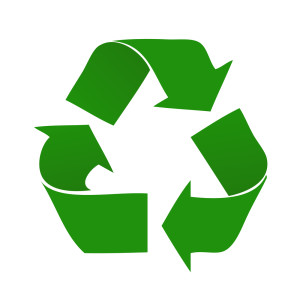
There is no doubt that all packaging materials have some sort of impact on the environment. The question is what types have the greatest impact, and whose responsibility is it to limit environmental costs?
According to Frank Ackerman from Tufts University, in 1997 packaging in general was responsible for about a third of all the municipal waste in the US. In an academic study on the environmental impact packaging has in both the US and Mexico, Ackerman found that while the environmental cost of increased packaging was “insignificant to producers,” when the sale of items with “minimal packaging” increased, sales of “wastefully packaged” items decreased.
This implies that the consumer has a vital role to play, because manufacturers are catering to their needs.
On the positive side though, the situation does seem to be getting better since the non-profit Massachusetts-based Tellus Institute reported in 1992 that packaging contributed 50 percent to municipal solid waste. They also found that recycling some types of plastic might be more environmentally detrimental than throwing them out. In terms of cardboard, they found that corrugating medium was the least of possible evils, with bleached kraft paperboard creating the most environmental impact.
Consumers Need to Be More Environmentally Aware
Various organizations have developed guidelines for consumers to encourage them to keep the environmental impact of products and packaging in mind when they purchase products. Tips from the US Environmental Protection Agency (EPA) aim to make consumers more environmentally aware, and include the need to choose items that have been packaged in the least wasteful way. The EPA says:
- Don’t buy products that have unnecessary packaging like bubble packs, plastic seals with cardboard backing that is designed for display, or bottles inside boxes.
- Choose products packaged simply with a material that can be recycled.
- Don’t buy goods packed with mixed materials, for examples foil and plastic.
- Don’t use additional plastic when purchasing fruit and veg, and opt for fresh produce sold without packaging if possible.
- Reuse containers and bags, boxes and paper.
- Buy products in bulk or in larger containers.
Even so, there are no clear guidelines in terms of choosing between paper and plastic, particularly when it comes to bags.
Plastic Versus Paper and Cardboard
Studies undertaken by the EPA highlight certain pros and cons of plastic grocery bags versus those made of paper that we should all keep in mind when choosing packaging materials. For instance:
- Production of both paper and plastic bags requires energy and in both processes waste is generated. While paper is made from timber, which is a renewable resource, plastic is made from natural gas and crude oil that are non-renewable resources. But paper bags generate 50 times more water pollutants and 70 percent more air pollutants during production than plastic bags.
- While plastic bags use 40 percent less energy during production and generate 80 percent less solid waste compared to paper bags, they can take between five and ten years to decompose. Paper bags, on the other hand, may decompose in about a month, although research shows that a lack of light, water and oxygen in landfill sites is inadequate and slows the degradation process. Furthermore, 2,000 paper bags weigh 280 lbs (127 kg) versus 2,000 plastic bags that weigh only 30 lbs (less than 14 kg).
- Recycling is preferable to landfill, and much more paper and cardboard is recycled than plastic. In 2000 a total of 20 percent of paper bags were reportedly recycled in the US, but only one percent of plastic bags. Additionally, it takes 91 percent less energy (measured in British thermal units) to recycle a pound (or about half a kilo) of plastic than a pound of paper.
Ultimately, the EPA recommends that whatever bags they choose to use, consumers should reuse them. And rather than using paper or plastic bags, a strong, reusable bag made of a material like canvas will have a much lower environmental impact.
Company Switches to Plastic to Lessen its Carbon Footprint
Five years ago, Riverford, a British organic farm controversially announced its intention to reduce the company’s carbon footprint by 70 percent by switching from paper and cardboard packaging to plastic. At the time, Riverford owner Guy Watson stated that it was his customers who were holding him back. Even though the cardboard boxes he used for deliveries were reused and then recycled, he worked out that 85 percent of the company’s packaging footprint was from cardboard and paper, and a mere eight percent from plastic bags and punnets.
To be sure he was doing the right thing, Watson funded a two-year study at Exeter University. The study’s conclusions were that in terms of greenhouse gas emissions and energy, plastic is preferable to paper and cardboard – though only just. Ultimately they found that “all disposable packaging is bad,” and while recycling can help, it only halves the environmental impact.
Riverford now:
- Minimizes packaging
- Designs re-usable boxes
- No longer uses degradable bags
- Uses oil-based polythene bags that they take responsibility for recycling
- Only uses bags and punnets to protect products and maintain moisture
- Ensures all punnets and bags are compostable but asks customers to return them in the re-usable boxes so the company can recycle them
Their message is a simple one: reduce, reuse, recycle.

Follow Us!